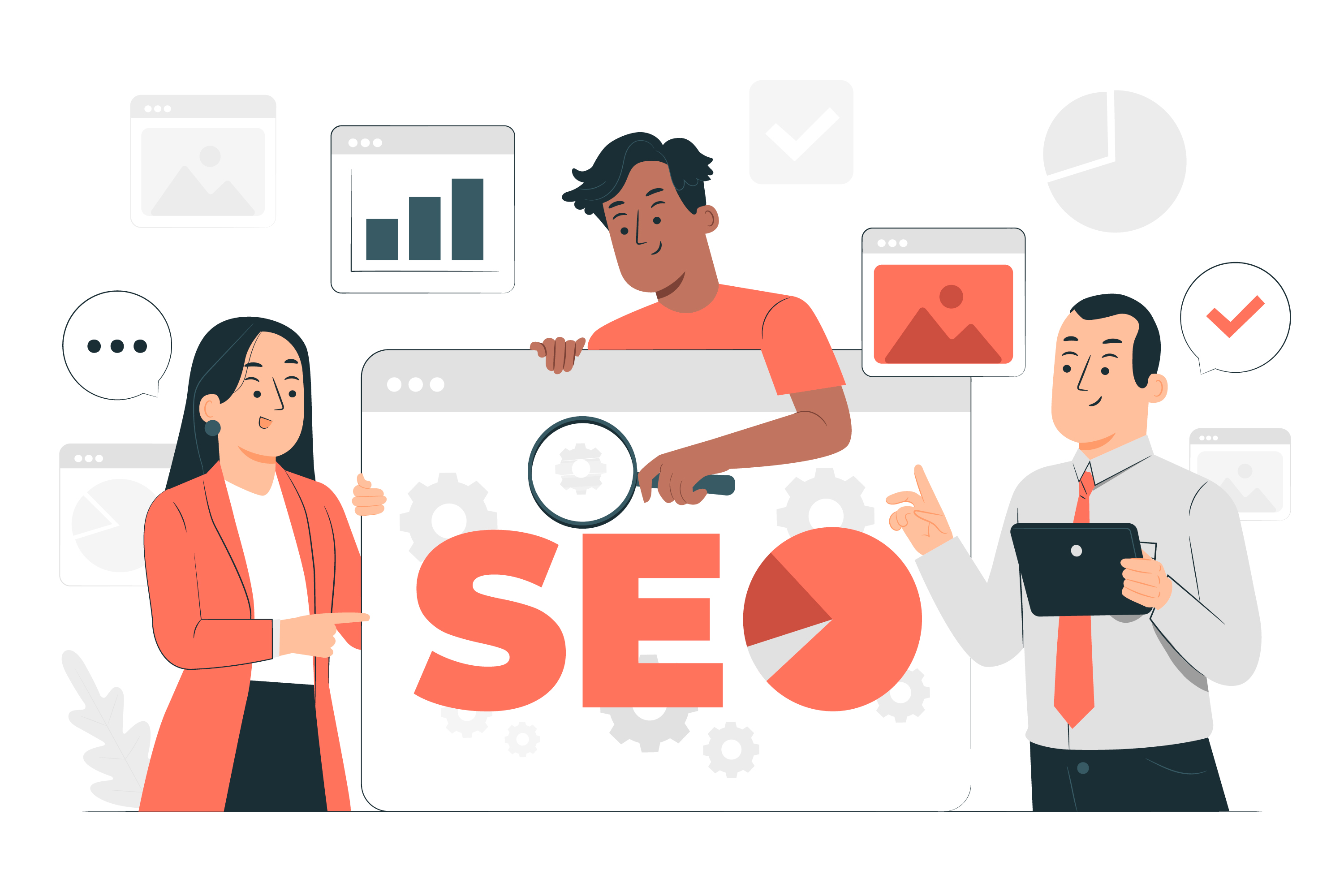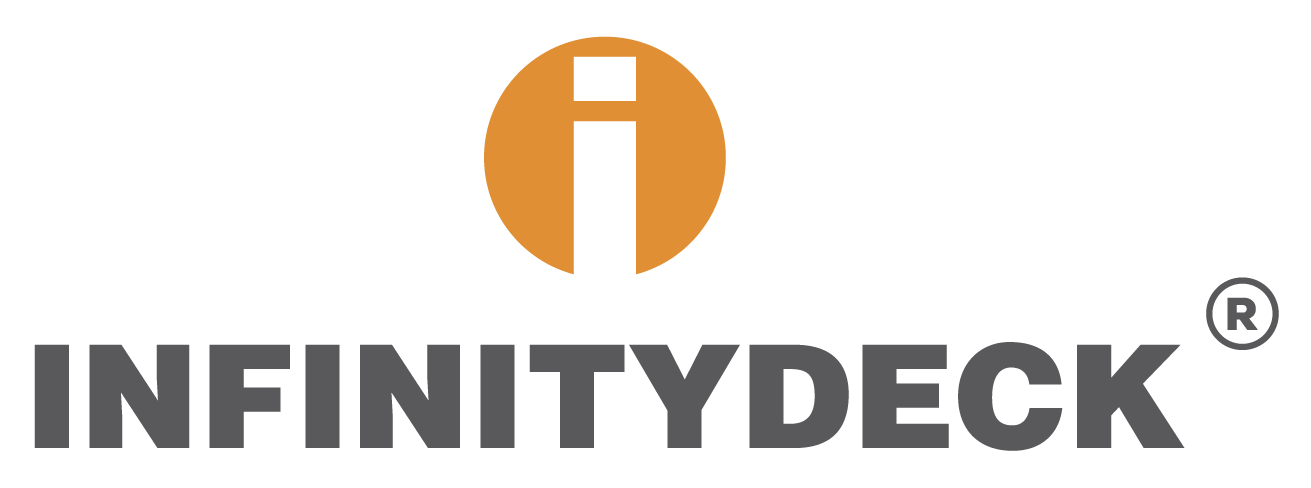
Infinity Deck will explain everything about Local SEO and answer your questions so you can grow your business locally with Search Engine Optimization.
What is Local SEO?
Local SEO (Local Search Engine Optimization) is an effective way to position your business on the internet where you are. Provide potential customers with the information they need about what they are looking for, making it easier for them to find your business.
Why does Local SEO matter?
Do you have a physical business nourished mainly by the people who come to it? If this question has a “Yes” answer, one of the legs that support your marketing strategy should be to improve Local SEO.
Do I need Local SEO?
Suppose you run a local store like hardware, flower shop, restaurant, physiotherapy clinic or any store where you are selling physically & locally. It will help you to increase your business.
Do reviews help Local SEO?
Yes
Do you need to include me near me for Local SEO?
Yes
Does e-commerce need Local SEO?
No, because it is mainly for an offline business. If you are selling offline, then YES.
Does Local SEO Work?
Yes, it works like a charm if you do it properly.
How can Local SEO Services help Businesses?
Local SEO helps you to connect with residents near by your area. They can find you by product/service or by your store name. By this, you can connect with your potential customers.
How directory listings help Local SEO?
Submitting to a local directory listing can help you rank your local business.
Here are the lists:
- yellowpages.com.au
- truelocal.com.au
- yelp.com.au
- womo.com.au
- infobel.com
- aussieweb.com.au
- australianplanet.com
- startlocal.com.au
- superpages.com.au
- pinkpages.com.au
- hotfrog.com.au
- showmelocal.com
- cylex.com.au
- au.enrollbusiness.com
- aussie-hours.com
- tuugo.biz
- searchfrog.com.au
- fyple.biz
- misterwhat-au.com
- savvysme.com.au
- comeonaussie.com
- businesslistingnow.com
- zipleaf.auz.net
- australiaonlineadvertising.com.au
- businesslistings.net.au
How does voice search impact Local SEO?
Yes, You need to provide and fill in maximum information in Google my business.
How important are google posts for Local SEO?
I recommended you to post in Google posts for Local SEO.
- Publish your office/shop interior and exterior photos
- Customer testimonials
- Product video
- Product/service information
Ranking Factors of Local SEO
- Relevance: refers to how well a business matches the local listing with customer searches. Having your business listing contains complete and detailed business information can help Google better understand what you offer and match your listing with relevant searches from customers in the area.
- Distance: It is calculated according to the distance between each potential business and the approximate place where Google locates the person entering the search according to their IP or geolocation.
- Prominence: refers to how well known a business is; for this, Google considers online information (links, articles, and directories) and offline information, such as how well known or familiar the brand is to people. Consider the comments and ratings people leave on your company’s Google My Business listing for this factor.
How to Rank Local SEO?
To make it a little easier for you, if you want to know how to improve your Local SEO, here we bring you 11 tips.
- Search for your business and your competition on Google
They say that information is power, and it is entirely accurate. Suppose you want to improve the organic positioning of your business. In that case, you first have to search Google for the main keywords (keywords) for which you want to appear in the first positions.
Search: flower shop in Melton, ‘Hardware store in Banyule,’ or Physician near me. This way, you will be able to know where you appear and which companies are also trying to position for those keywords.
Check the web and the profiles of your competitors to identify what they are doing and what you are not to appear in a better position.
In addition, this research work will help you create your keyword strategy, and for this, you must work on ‘search intent,’ that is, how customers would search for us.
Put yourself in the mind of your customers and think like them to decide what keywords they would search for you with.
- Search for a domain with your keywords
Suppose you have not yet created your website or are in the process of making it. In that case, we must change our thinking when looking for a suitable domain for our local business.
Now, suppose your business is local and localized. In that case, you can give much greater importance to your presence in Google by naturally including your type of business and location in the domain itself: www.plumbingmelbourne.com. This will firmly push us for the keywords “plumbing Melbourne”.
Including the name of your town in your titles is very important if we want to rank our business. That’s why we must try to include those keywords in our titles and descriptions. Of course, you don’t have to go too far.
If Google realizes you are overoptimizing your site, it will penalize you. For this reason, the best way to include your keywords is to do it naturally and not too forcefully. This is an example:
Google My Business is the primary tool that Google gives us to control all the information it has about our business. From here, it will get the information we have in Google Maps and the search file that will appear when searching for our company.
You must fill in all the information the tool allows you to add and keep it updated. It is also interesting that you publish content updates just like you do on any social network since this content will be highly taken into account by Google.
Ask your customers to leave their reviews on Google.
When working on marketing a local business, we must try to convert our face-to-face customers into part of our digital community. That’s why we must remind you that your opinions on Google My Business are significant to us.
One trick is to place a little sign with a QR code in your checkout area (or at the store’s exit) to make it easy for them to leave their opinion. If you work with large margins, you could also consider giving a discount on the next purchase to whoever left your review.
And suppose it is essential that your customers feed your Google My Business profile with reviews and opinions. In that case, it is just as necessary to respond to them. Reserve a few minutes a week to respond and thank all the opinions you receive on your profile.
Try to unify your contact information in all the places you appear.
For Google, the contact information provided for your business must be accurate and unified. Business name, physical address, web address, contact phone number, and email are the most critical data for your business.
Check that all the sites where you provide this information have the same data so that the veracity and importance of this data are greater for Google.
If erroneous data appears on other web pages, contact the site administrators so that they can correct it.
Importance of Google Maps
Many searches for local businesses are not done on Google but Google Maps. Here, the mobile device knows the location and searches by proximity, so users who find us on Google Maps are potential visitors to our business. For this reason, you must have all the updated information.
Fill in your hours, take lovely photos of your store and your facade, ensure the address is correct and keep in mind that the more updated your profile is, the more Google will like it.
In addition, we recommend that you insert the map where your business appears on Google Maps on your website. You have to search for it on Google Maps and copy the HTML code they give you to share.
Include the link to your website in all the local directories that you can
Indeed your locality has directories where you can register your business. Google attaches great importance to which external sites can include links to your website -what is popularly known as link building-.
If, in addition to this, whoever includes your link has the name of your locality in their domain, you will add more points.
Perfection will be achieved if your anchor text (or the text where the link is included) has your business’s name and location.
The more authority it has and the more local the place where we manage to place that link, the greater the importance that Google gives to that link, and therefore the more influence it will have on our positioning.
Position your photos and videos
Do you record short tutorials to show how to use the tools you sell? It is recommended to upload pictures of your store’s activity that attracts your customers. Do you generate virtual catalogues? If not, don’t forget that all the content you create can become your ally for your local positioning!
YouTube is one of the most used search engines in the world and belongs to Google. Enter your whenever you can see in your video to improve local positioning, that is, the town’s name, the type of business, or the location of your neighbourhood.
Finally, try to geolocate or add your local business’s location to your images’ metadata. This will make Google’s job much more manageable.
Work on the SEO on the page of your website
We must focus on positioning our business for local and targeted searches. However, we must not forget that no matter how Local SEO is, it is still SEO.
Monitor the site’s loading speed, create a clean architecture for your website with the keywords to position, redirect the pages to avoid 404 and 301 errors, and work on a content strategy that allows you to position yourself for strategic keywords.
Keep everything up to date.
If Google has made one thing clear, it is that static pages with poor and immobile content are not to its liking and will position them below other websites that meet its requirements.
Take some time to adjust and add content to your website and your Google MyBusiness profile.
It is essential that Google detects this activity and that we can also adapt that content to new SEO trends, new interesting keywords, or apply all that knowledge we have learned about SEO.
In addition, Google My Business will provide you with a large amount of information and statistics about the search intent of your users and results at an organic level.



